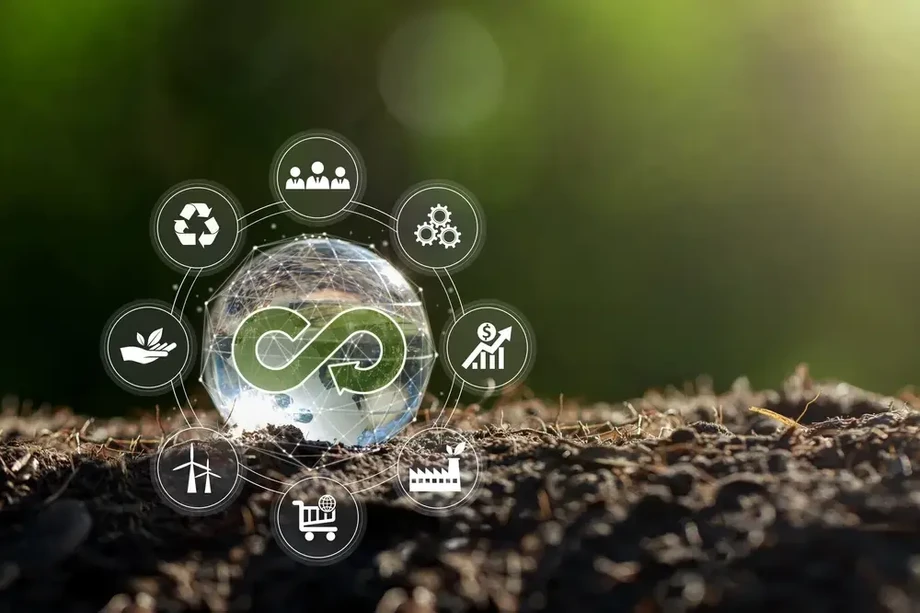In an era where climate change is an undeniable reality, the urgency to adopt sustainable practices across all sectors has never been more critical. As the world grapples with the consequences of environmental degradation, the agricultural sector stands at the forefront of this battle. In this Climate Change Review, we delve into the pivotal role of sustainable development in agriculture and its implications for achieving global sustainable development.
Sustainable Development in Agriculture: A Prerequisite for Our Future
Climate change has triggered a cascade of challenges for the agricultural industry, from unpredictable weather patterns to soil degradation. In the face of these challenges, the need for sustainable development practices in agriculture has become more apparent than ever. Sustainable agriculture, as a holistic approach, seeks to balance the economic viability of farming with environmental stewardship and social responsibility.
At the heart of sustainable development in agriculture lies a commitment to preserving natural resources, minimizing ecological impact, and promoting social equity. Practices such as organic farming, agroforestry, and precision agriculture exemplify the tangible steps taken towards achieving a harmonious coexistence between agriculture and the environment.
The adoption of sustainable agricultural practices not only mitigates the adverse effects of climate change but also enhances the resilience of farming communities. Crop diversification, efficient water management, and integrated pest management are just a few examples of how sustainability in agriculture can foster adaptability in the face of a changing climate.
Global Sustainable Development: The Interconnected Web
The concept of global sustainable development extends beyond the boundaries of individual nations. It envisions a world where economic growth is intertwined with environmental protection and social inclusivity. Agriculture, being a fundamental component of global economies, plays a pivotal role in shaping the trajectory of sustainable development worldwide.
As the global population continues to burgeon, the demand for food surges in tandem. Sustainable development in agriculture becomes not just a choice but a necessity to ensure food security for current and future generations. The interconnectedness of global sustainable development underscores the importance of collaborative efforts in implementing and advancing sustainable agricultural practices.
The United Nations' Sustainable Development Goals (SDGs) provide a comprehensive framework for nations to align their efforts towards a more sustainable future. Within these goals, Goal 2 specifically addresses the importance of achieving food security and promoting sustainable agriculture. By integrating sustainable practices into agricultural systems, countries can contribute significantly to achieving this goal while simultaneously addressing other SDGs related to poverty, climate action, and biodiversity conservation.
Climate Change Review: Navigating Challenges and Embracing Opportunities
In the midst of climate change challenges, the agricultural sector is not merely a victim but a protagonist capable of effecting positive change. The Climate Change Review reveals that while unsustainable agricultural practices contribute to environmental degradation, sustainable development in agriculture offers a pathway to mitigate these impacts and build a more resilient future.
Technology, innovation, and education emerge as key catalysts in this transformative journey. Precision agriculture, for instance, utilizes cutting-edge technologies such as sensors, drones, and data analytics to optimize resource use and minimize waste. Embracing these innovations empowers farmers to make informed decisions that benefit both their livelihoods and the environment.
Education plays an equally crucial role in fostering a mindset shift towards sustainable agriculture. By equipping farmers with the knowledge and skills needed to implement sustainable practices, we empower them to be stewards of the land. Additionally, fostering a greater understanding among consumers about the environmental impact of their food choices can drive demand for sustainably produced goods, creating a market-driven incentive for farmers to adopt eco-friendly practices.
Conclusion: Forging a Sustainable Path Forward
In the grand tapestry of global sustainable development, the threads of sustainable development in agriculture are tightly woven. The Climate Change Review underscores the urgency for a paradigm shift in our approach to agriculture, one that prioritizes the health of our planet and the well-being of future generations.
As we navigate the complexities of climate change, the path forward is clear:
Sustainable development in agriculture is not just a choice; it is the key to unlocking a future where humanity and the environment coexist harmoniously. By embracing innovation, education, and a collective commitment to change, we can cultivate a resilient agricultural sector that serves as a cornerstone for global sustainable development. In doing so, we nurture not only our crops but also the promise of a sustainable and thriving future for generations to come.






Comments